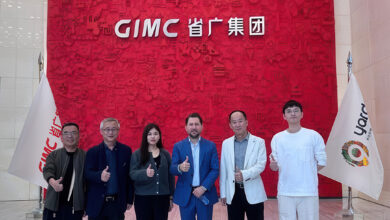
Non-oil business activity in Kuwait, the UAE and Saudi Arabia continues to grow, albeit at a softened pace.
According to the latest business sentiment survey from ratings agency S&P Global, the overall softening in growth across the three Gulf states was largely a result of increased market competition, rising input costs and capacity constraints.
In Kuwait the non-oil private sector witnessed a positive start to the second half of the year, with a rise in new orders leading to growth in output and purchasing. However, employment remained unchanged because of difficulties in finding suitably skilled staff.
New orders continued to increase at a solid pace in July despite the rate of growth easing to a 10-month low.
Businesses in Kuwait were able to use advertising and competitive pricing to secure new business and expand output during July, despite margins being tightened, according to Andrew Harker, economics director at S&P Global Market Intelligence.
“Discounts were often offered in spite of increasing input prices, including a record rise in staff costs,” he said.
Similarly, in the UAE the non-oil sector’s growth improved at its weakest pace in almost three years in July.
Although delivery times and purchases are improving, ongoing supply chain challenges mean companies have had to use their existing stock to meet order backlogs, which could hinder future growth if stock levels drop significantly.
“Overall, the non-oil sector is expanding solidly and could be strengthened if companies start to get on top of their workloads,” said David Owen, senior economist at S&P Global Market Intelligence.
“Firms are generally optimistic of this, with confidence in the year ahead remaining strong, while hiring continues to raise staff capacity.”
In Saudi Arabia the non-oil private sector experienced a solid but softened improvement.
New orders rose at their slowest rate in more than two and a half years because of intense market competition and weather challenges. However, companies managed to expand their output and staffing levels to meet higher sales despite cost pressures and market competition.
Demand has played a crucial role in driving orders, ensuring that businesses remain active and forward-looking, S&P said.
The extensive competition in the market has, however, led to a downward pressure on prices, as companies strive to maintain their market share by offering more attractive pricing to entice consumers.
Source: AGBI.com




